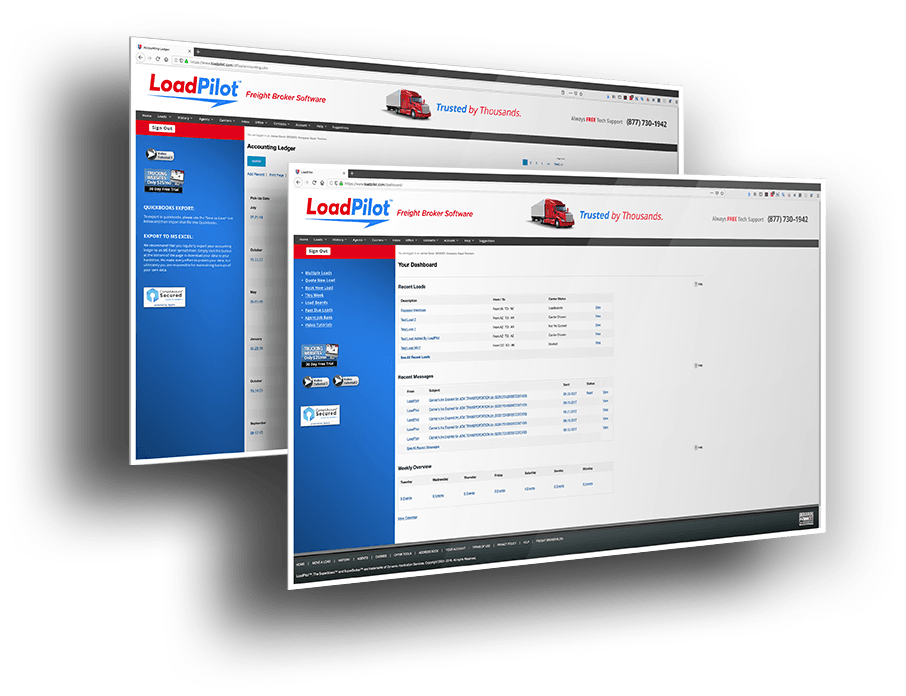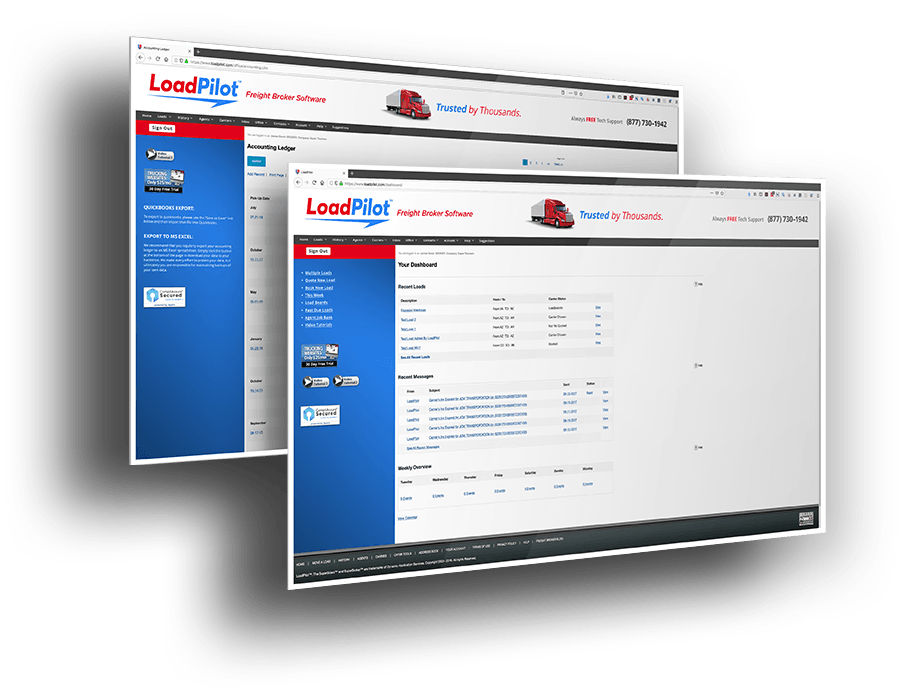Making the decision of whether or not to become a freight agent or freight broker is not one to be taken lightly. Both careers require careful consideration of several skills and resources needed to be successful. By weighing the pros and cons of both options, you can make a more informed decision on which career path is right for you.
As a freight agent, you will be responsible for coordinating the transportation of goods on behalf of your clients. This includes making sure that shipments are properly packaged and labelled, and that they arrive at their destination on time. You will need to have excellent communication and customer service skills in order to effectively coordinate shipping schedules and resolve any issues that may arise.
As a freight broker, you will be responsible for negotiating contracts with carriers and arranging for the transportation of goods. You will need to have strong negotiation skills in order to get the best rates for your clients. In addition, you will need to be familiar with the various shipping regulations in order to ensure that shipments are transported legally and safely.
These tasks seems very similar when looking at their requirements. Being able to understand where they become similar and where they are different would help one understand the responsibilities for each role and how to choose wisely regarding the career path to take.
Distinguishing a Freight Agent from a Freight Broker
The decision of becoming a freight agent or freight broker can be difficult. Both careers have similarities, but there are also key differences that should be considered before making a decision.
One similarity between the two roles is that both involve working with customers. Agents and brokers work with clients to find the best shipping solutions for needs, whether it is choosing the right carrier or negotiating rates. They also both need to be knowledgeable about the shipping industry and keep up with changes in regulations and policies.
The main difference between agents and brokers is their level of involvement in the shipping process. Freight agents are responsible for handling all aspects of the shipment, from booking to delivery. Brokers, on the other hand, simply connect shippers with carriers. This can be a great option for businesses that want to outsource the logistics of shipping but still want someone they can trust to handle their cargo.
Requirements
Do I need a license to become a freight agent?
There is no one-size-fits-all answer to this question, as the licensing requirements for freight agents can vary from state to state. However, most states do require some form of licensing or certification in order to work as a freight agent.
This can be a challenge for aspiring freight agents who live in states that have stringent licensing requirements. However, it is important to remember that there are many resources available to help you obtain the necessary certification. The American Association of Freight Forwarders (AAF) offers a variety of courses and resources that can help you build the skills you need to become a successful freight agent.
One other aspect to consider is the type of agent one becomes. Some freight brokerages hire agents to be employees to their companies. They normally set qualifications for people they hire and may be more flexible when it comes to licenses already obtained by the agent.
On the other hand, if one applies as an agent but is not directly employed by the brokerage, they are called Independent contractors. Usually, when a brokerage hires for independent contractors, it would prefer licensed agents over non-licensed ones.
Do I need a license to become a freight broker?
To start a freight brokerage, you will need to obtain a freight broker license. This license allows you to act as the middleman between shippers and carriers, brokering deals for the transportation of goods. In order to obtain a freight broker license, you will need to meet certain requirements, such as having at least three years of experience in the transportation industry. You will also need to pass an exam administered by the Federal Motor Carrier Safety Administration (FMCSA).
How much do I need to invest for each career path?
Generally, if you are thinking about becoming a freight agent, you will need to invest in several things. The good news is, they are mostly of no cost.
The most important is a good understanding of the shipping industry. You will need to be familiar with the various shipping regulations and policies in order to effectively book and coordinate shipments.
In addition, you will need to have strong communication and customer service skills. Agents need to be able to build relationships with clients and work with them to find the best shipping solutions for their needs. You will also need to be organized and able to handle multiple tasks at once.
If you have the skills and knowledge required for this career, but don’t have the resources to invest in them yourself, there are many programs available that can help you get started. The American Association of Freight Forwarders (AAF) offers a variety of and resources that can help you build the skills you need to become a successful freight agent.
The investment required to become a freight broker is relatively low compared to other business investments. The exam fee for the FMCSA licensing test is $75, and the cost of obtaining your freight broker license can range from $300 to $3,000.
However, there are other costs to consider when starting your own freight brokerage. You’ll need to invest in a computer and software that can help you manage your business operations, as well as office space and supplies. These costs can add up quickly, so it’s important to do your research and plan accordingly.
If you’re ready to start your own freight brokerage, the American Association of Freight Forwarders (AAF) offers a variety of resources that can help you get started. AAF provides instruction on how to obtain your freight broker license, as well as tips on how to run a successful business.
Damages and who takes responsibility?
Following the Carmack Amendment to the Interstate Commerce Act, the Carrier is determined liable for any damage or loss to a shipment. Brokers or agents will, however, be held liable if it would be found that information provided has contributed to the cause of the damage or loss of the shipment.
As a freight broker, you are generally liable for your business which includes any mishandling of your agent of loads assigned to them, as they are representations of your company. If they are an independent contractor, however, you can include terms for this and state them in your contract to define parameters of liability. Agents generally are held responsible for their own actions but you may need to have this clearly stated in your agreement.
Who earns more?
The answer to this question depends on a number of factors, including the level of experience and skills each individual brings to the table. Generally speaking, freight brokers tend to earn more than freight agents. This is because freight brokers are responsible for finding a carrier who is able to transport goods to their destination, while freight agents are responsible for handling all aspects of the shipment.
However, there are many successful freight agents who earn a good living. It is important to remember that success in this field requires hard work and dedication. If you are willing to put in the time and effort, you can achieve great things as a freight agent.
Freight Agents have Limitations
First and foremost, freight agents are not licensed to broker shipments. This means that they cannot negotiate rates with carriers or arrange for shipments to be picked up and delivered. Freight agents can only work with shipments that are already pre-booked and pre-paid.
Another limitation of being a freight agent is that you are limited to working with a specific set of carriers. This can make it difficult to find the best rates and services for your customers.
Finally, freight agents typically do not have much control over the scheduling or delivery of shipments. This can be frustrating if your customer needs something delivered quickly or on a specific date.
So, which career path is right for you? If you are someone who is organized and detail-oriented, then becoming a freight agent may be a good choice. On the other hand, if you are good at networking and have a strong sales skillset, then becoming a freight broker may be a better fit. It is important to consider your strengths and weaknesses before making a decision, as this will help you to focus on the areas where you will be most successful. Also bear in mind your financial preparedness as it entails certain responsibilities to be a Freight Broker.



